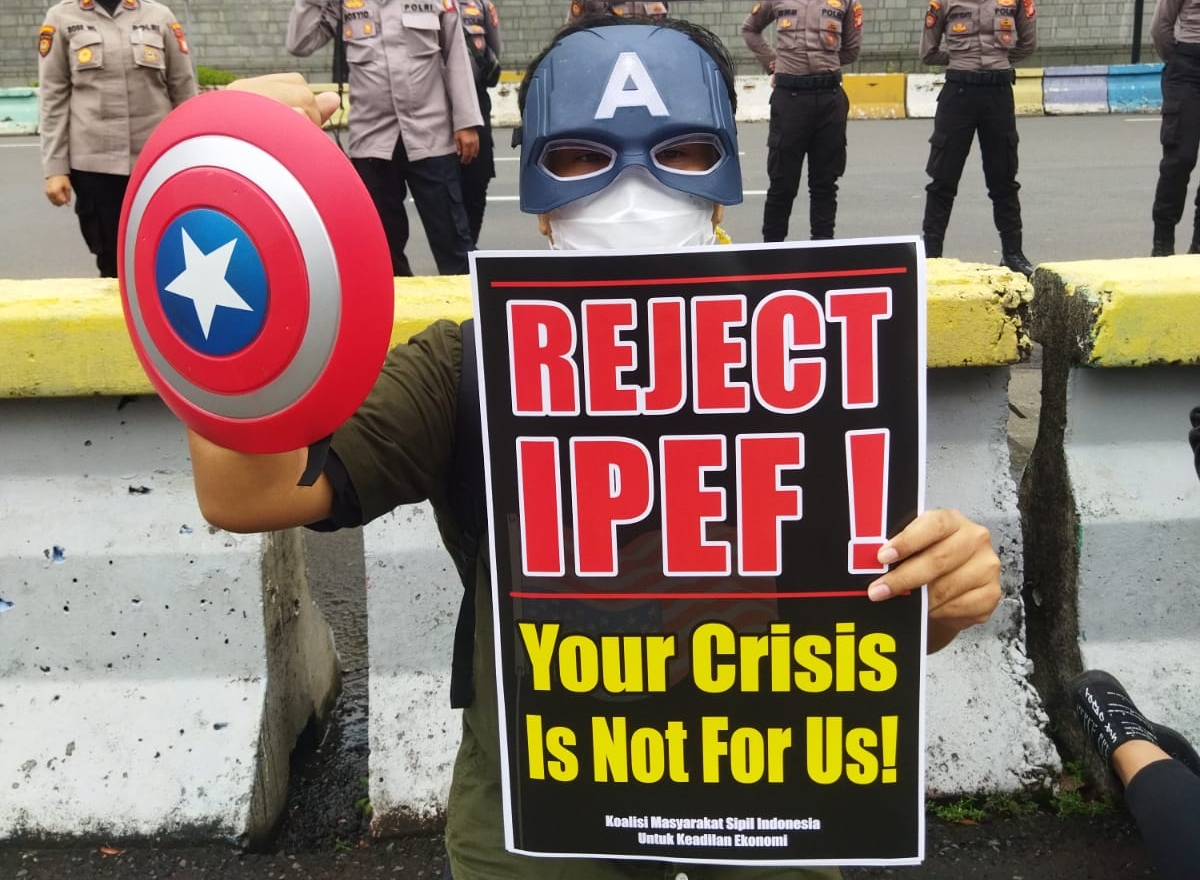US agenda revealed at IPEF talks in Bali
AFTINET | 28 March 2023
US agenda revealed at IPEF talks in Bali
The summaries of US inputs at the recent Bali round of negotiations for the Indo-Pacific Economic Framework (IPEF) reveal US pressure of the other 13 states to adopt US standards. At the same time the US Congress is yet to determine the IPEF agenda on the “digital economy”.
IPEF includes the US, Australia, Brunei, India, Indonesia, Japan, the Republic of Korea, Malaysia, New Zealand, the Philippines, Singapore, Thailand, Fiji and Vietnam.
US Trade Representative Katherine Tai told a congressional committee on March 24 that global rules around digital trade are out of date but that efforts to advance them through negotiations like IPEF are inhibited because Congress has yet to enact its own regulations, particularly on topics like data privacy.
“Our ability as negotiators to take forward steps is going to be impacted by and really limited by how far you as legislators have been able to go in terms of establishing regulatory frameworks that are critical to the digital economy,” Tai told Rep Suzan DelBene (D-Wash).
Mega tech companies have been prominent in creating the digital trade agenda in IPEF. Current trade rules favour deregulation of data flows and digital companies despite recent cyber hacking of customer data, rapid development of Artificial Intelligence (AI) and other examples which show that more, rather than less regulation is needed.
Meanwhile, the official US summaries of their inputs at Bali on March 13-19, 2023, covering Agriculture, Services Domestic Regulation and Customs and Trade Facilitation, revealed that IPEF states would have to invest heavily in online systems that will benefit exporters of goods and services from the advanced economies in the group – the US, Australia, New Zealand, Japan and South Korea.
This focus could distort spending priorities of low-income IPEF member states who may wish to prioritise education, health and climate action, for example, ahead of trade.
The Agriculture section aims to expand export and import of food in the region, while saying that governments should be able to ensure health for plants, animals and communities, and food security. The emphasis is on transparency in import licensing procedures for agricultural products, certification requirements, and equivalency to ensure that any requirements for importation are clearly communicated to regional agricultural producers. The concern to promote food security in the region is undercut by talk of “disciplines” against export restrictions.
The Services Domestic Regulation section is an extension of the December 2021 Joint Statement Initiative on Services Domestic Regulation by some World Trade Organisation (WTO) member states, which is a ‘coalition of the willing’ that has agreed on new standards with limited participation of developing nations. Its goal is to enable US service providers to use online systems to acquire all licenses and authorisations needed to operate in another country.
Customs and Trade Facilitation also aims to reduce red tape and costs by requiring governments to make all their forms available online and to receive them, and other supporting documents, electronically. Governments must also process pre-arrival information in a single window with a view to releasing goods upon arrival.
The Good Regulatory Practices proposed text aims to expand on-line access to relevant information, including information about registries of existing laws, the procedural requirements of regulatory authorities, websites where draft regulations are posted and comments accepted, and the acceptability of electronic documentation, where appropriate.
The US plans to release summaries of other aspects of IPEF Pillar 1 - Trade, including on labour rights and environmental standards.






